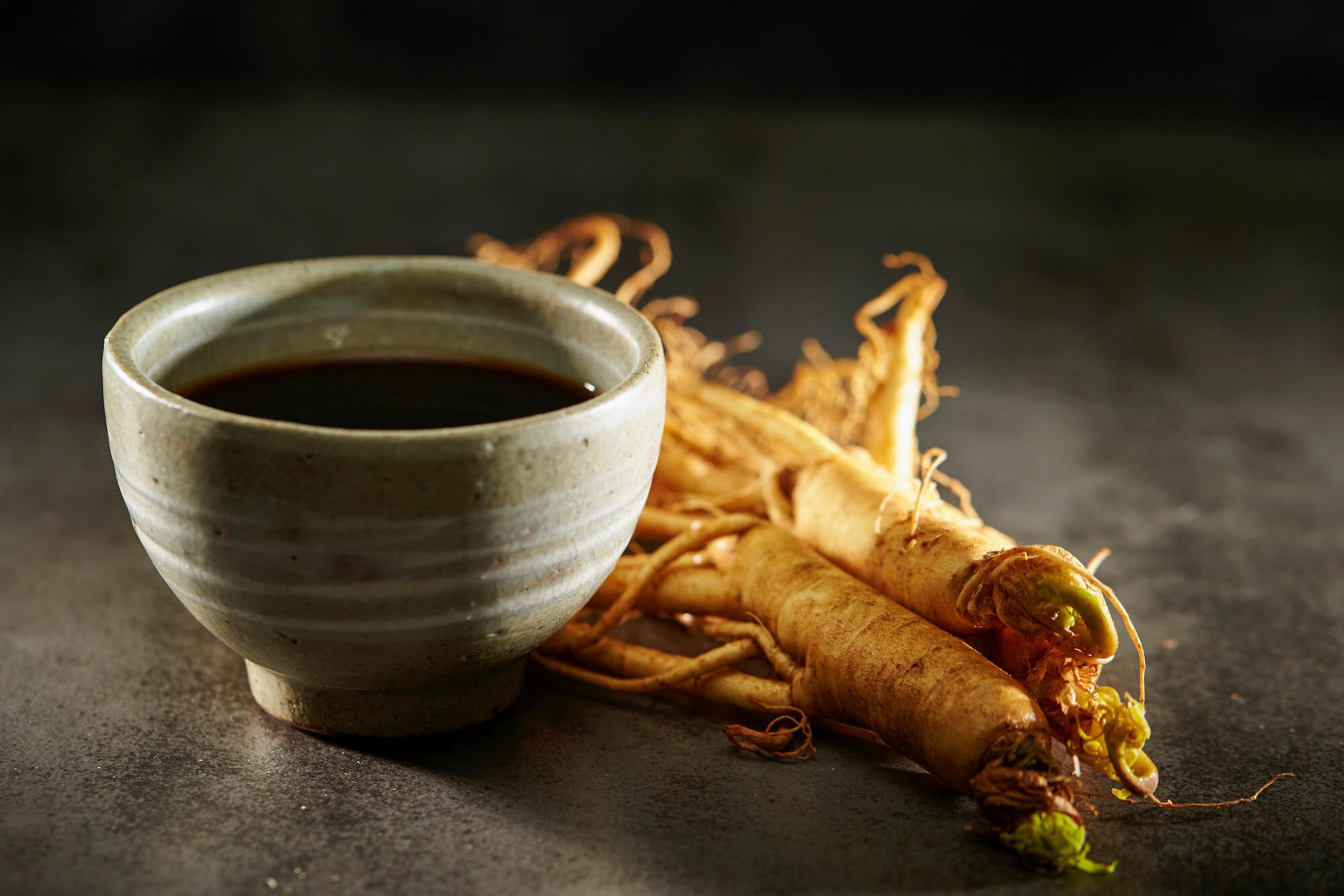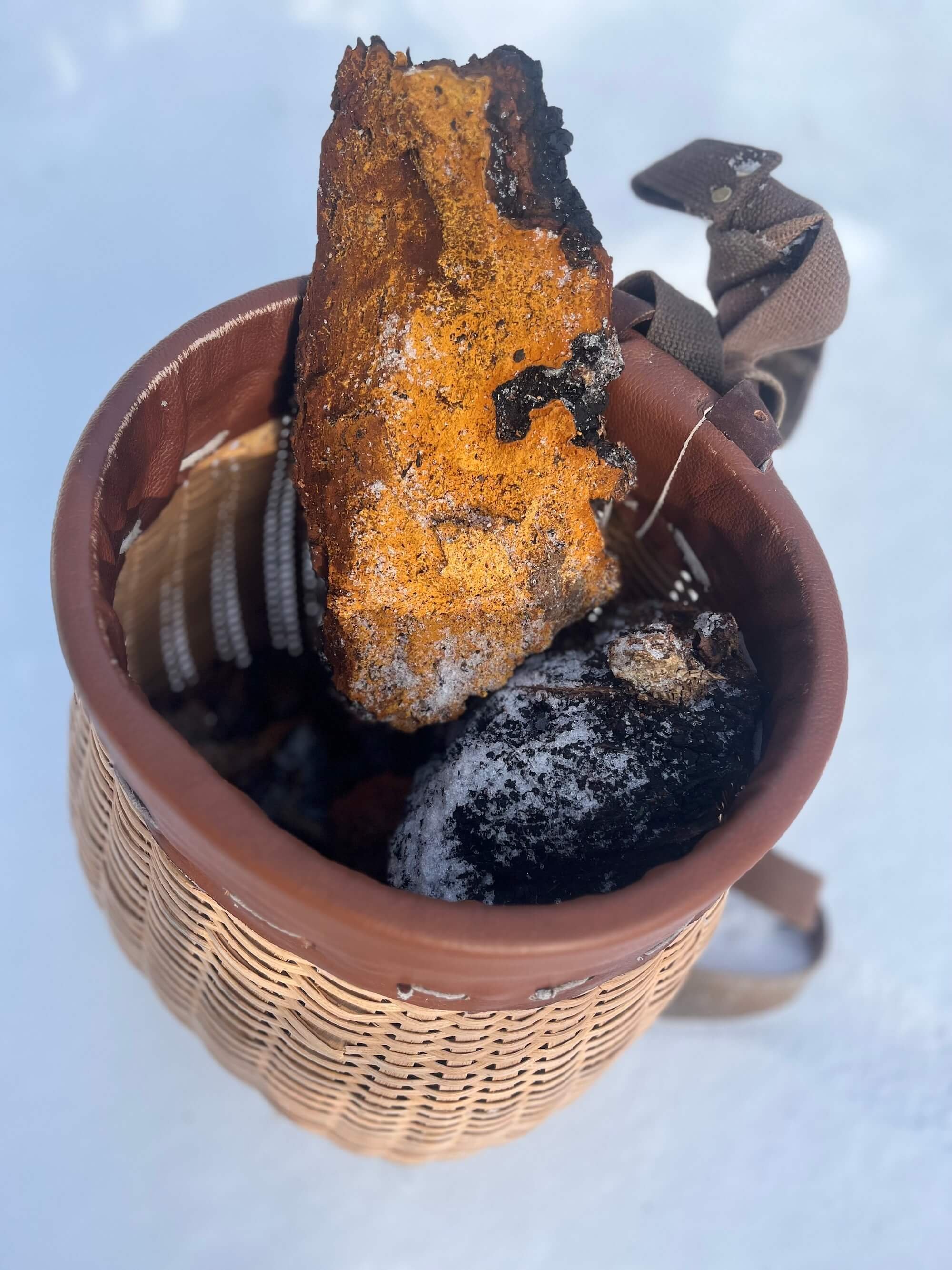Deep Winter Welcomes Warming Enlivening Teas
We are in the depths of winter, and in our house, a large pot of tea steams and simmers on the blazing wood stove. Aromas of turmeric, ginger, cinnamon, anise, clove and cardamom fill the room, and I'm getting ready to pour myself a fat mug-full of chai...yum. Winter is an ideal time to nourish, rest, and replenish our body's deep reserves. With more time on my hands to savor the slower season, my focus turns to eating slowly-cooked warming foods, getting out & moving in fresh air, enjoying extra rest and reflective practices, and making medicine and foods with adaptogenic herbs.
I'm sure you've heard the term adaptogen or adaptogenic herbs, as this verbiage is often tossed around in the herbal and health industries. Essentially, adaptogens are a group of herbs known to build & replenish the body's adaptive reserves when consumed consistently over a period of time. These herbs help one achieve an adaptive response to stress, thus increasing the body's ability to cope with stress more effectively and easefully. Adaptogens are safe for daily use, and they have a cumulative effect in the body, meaning the more you consume them over time, the more strongly you'll experience their beneficial effects. When enjoyed regularly over a period of 2-3 months or more, these incredibly healing herbs actually alter the release of stress hormones in the body and support the entire neuroendocrine system, particularly adrenal function and the HPA-axis, which is one of the body's major auto-regulatory systems. Adaptogens assist the adrenal glands in responding more effectively and efficiently to the excess in hormones, and with regular use of these herbs, adaptogens have been proven to help reverse immunosuppression caused by stress, reverse the decline of immune-system function as people age, and reduce the risk of cancer and heart disease. Yes!
Stress—whether it is biological, chemical, environmental, nutritional, physical, psychological or spiritual—strongly affects both physiological and psychological function. As most of us have experienced, prolonged stress causes changes in hormone levels as well as immune system, cardiac, and gastrointestinal function. In this crazed modern day world, we sure do need all the support we can get to limit stressors, strengthen our body's organs and systems, and modulate our stress response.
Common adaptogens include: American ginseng, ashwagandha root, Asian ginseng, cordyceps, eleuthero (aka Siberian ginseng), holy basil (aka tulsi), rhodiola, gotu kola, goji berry, schizandra berry, shatavari, astragalus, licorice root, and reishi mushroom. Thankfully, many adaptogens are nutrient-rich, delicious, and easily integrated into cooking rituals; others are absolutely delightful as oxymels, cordials, teas, syrups and tinctures. To learn more about the therapeutic qualities, energetics, and preparations for each particular adaptogenic herb, please access my Plant Profiles and read up. For even more information, I highly recommend David Winston & Steven Maimes' informative book, Adaptogens: Herbs for Strength, Stamina, and Stress Relief.
One of my most favorite ways of enjoying adaptogens is by making and drinking an enlivening, warming, spicy & sweet, aromatic chai tea each day. My tea decoction regularly includes reishi, roots of ashwagandha, eleuthero, astragalus and shatavari, and a variety of carminative spices. You could also include ginsengs, tulsi, rhodiola, cordyceps, licorice or other adaptogenic herbs. Adding a milk of your choosing (ex. oat milk, almond milk, raw cow's milk, or coconut milk) and your fav sweetener (raw cane sugar, raw honey, maple syrup, monk fruit, rice syrup, molasses, etc) makes it even more enticing. Know too that if you add licorice root or anise seed, you'll be surprised just how sweet the tea naturally is! Feel welcome to mix up the quantities of herbs and types of spices, and as you become more accustomed with these plant friends, have some fun playing around with levels of bitterness, pungency, spiciness and sweetness.
I personally love adding marshmallow root and milky oat tops for a more soothing, mucilaginous, nutrient-rich tea. Chaga mushrooms and turkey tails are wonderful additions as well, pumping up the tea with all their immune-boosting polysaccharides (beta-glucans). As for carminative spices, which aid digestion, ease gas and bloating, contain antimicrobial essential oils, and aid in the body' ability to assimilate nutrients, some of my favorites include: fennel, anise, fenugreek, turmeric, ginger, cinnamon, nutmeg, clove, star anise, black pepper, cardamom. Below I'll give you a couple recipes with suggestions for quantities, but please do take this as a guide intended to inspire. In our house, I tend to make large quantities because I can easily sip cup after cup, and I love having a hot cup of tea for a friend or neighbor who happens to stop by. Enjoy your creative process as you tune-in to your intuitive being.
Adaptogen Chai Recipe Possibilities
Ingredients:
1 slice reishi
3 slices astragalus root
2 tbsp. ashwagandha
1 tbsp. shatavari
1 tbsp. eleuthero (if you wish)
3 tbsp. chai spices total of your fav spice mix (ginger, cinnamon, cardamom, star anise, pinch of nutmeg & clove)
Optional: add as much fresh ginger and turmeric root as you like
10 cups filtered or spring water
Another Version
3 reishi slices
3 slices of licorice root
3 tbsp. total of your fav spice mix
Optional: add as much fresh ginger and turmeric as you like
10 cups filtered or spring water
Add adaptogenic herbs to a large pot with water. Slowly bring to a boil. Cover and simmer on low for at least 20 minutes. Add in carminative spices and simmer for an additional 10-15 minutes. As you pour/ladle and strain, feel welcome to continue adding water and brewing, or adding more herbs over the course of the day. Add milk and sweetener to your taste.
Play around & Enjoy!




